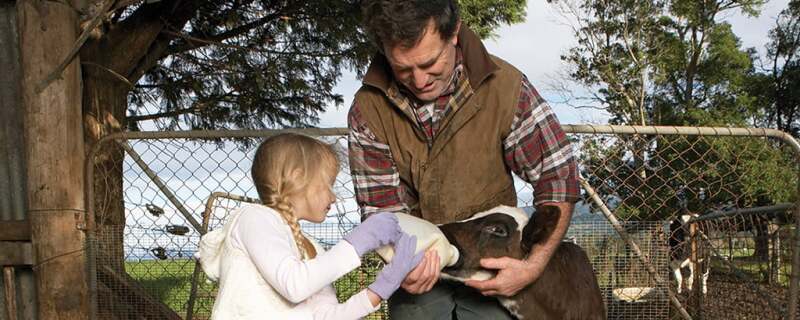Business or hobby farmer — which side of the fence are you on? It could make a big difference if you aren’t properly insured.
What is a hobby farm?
SECURA considers a hobby farm to be small farms that the owners operate as a hobby instead of running it as a business. People who own a hobby farm typically have another primary source of income, but may choose to sell their products at local farmers markets. SECURA would allow an insured to sell their products at a farmers market as long as the income is no more than $20,000 annually.
How many acres do you need for a hobby farm?
Hobby farms can be different depending on what kind of crops or farm animals you choose to have on your farm. SECURA allows up to 160 acres to be farmed by the insured with a hobby farm. This helps keep the land more manageable when it’s a passion instead of a business.
Steve Smits is a hobby farm insurance specialist for SECURA. He says homeowners need to start thinking about hobby farm insurance if the property operates as a farming business (in any capacity) or operates beyond residential norms.
Ask your agent about hobby farm insurance if you might have exposures like these:
Product and premises liability
Do you take products to a farmers market? Sell pumpkins, eggs, or other goods from a stand in your yard? Business activity like this exposes you to liability for food-based illnesses, property damage, or accidents.
“A hobby farm is a small business. If you’re running a small business without proper insurance, you’re leaving all your assets at risk,” Smits advises.
Livestock liability
As a hobby farm owner, you might not be protected if your goat gets loose and causes a traffic accident or jumps all over a neighbor’s car. And think of the harm a larger animal, such as a frightened horse or a cow could cause with just one kick.
“If the animal has hooves, you need extra liability coverage,” Smits says.
Livestock property coverage
If you have high-value animals, livestock property coverage can provide compensation if those animals are stolen or killed in a storm or vehicle collision.
Farm personal property
Hobby farmers tend to have tractors, plows, and other large equipment. Talk to your insurance agent about whether you need additional protection for your equipment assets.
Farm outbuildings
Hobby farmers tend to have additional buildings like pole barns and sheds that need insurance coverage to protect them.
“It doesn’t take a lot to protect yourself,” Smits urges. “When some people hear the word ‘farm’ they think that insurance costs will be astronomical. But really, we can help protect a hobby farmer for less than a dollar a day.”
As with any insurance, keep your agent updated as your property grows or your activities change. It’s always better to know you’re protected than assume you’re covered.




